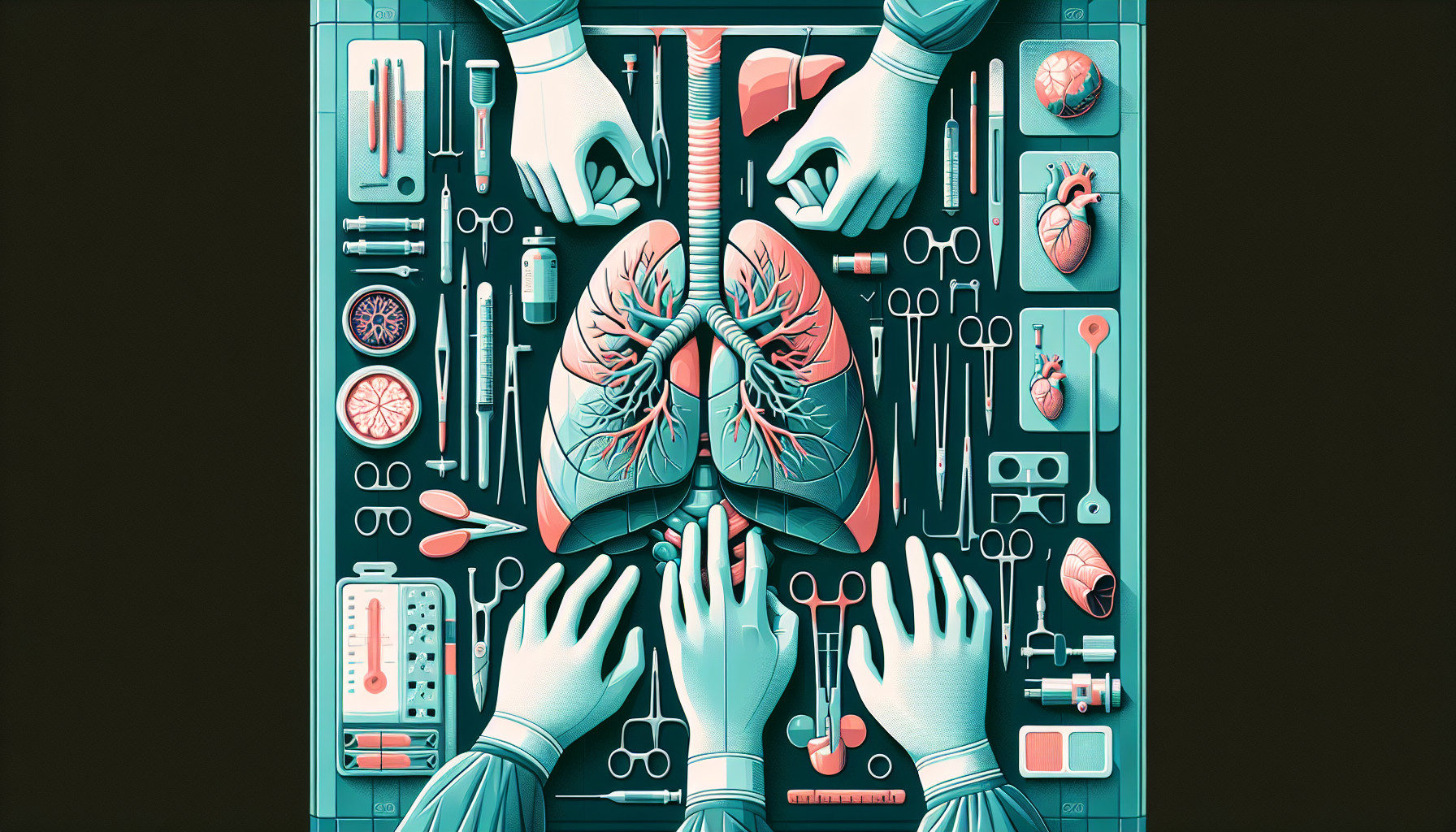Our Summary
This study looked at how well the lungs function after patients undergo major surgery to remove part of the lung due to non-small cell lung cancer. The researchers measured the actual and predicted lung function of 137 patients around a year after their surgery and found that both were strongly related. They then defined a greater compensatory response (the lung’s ability to compensate for the loss of part of it) as having both actual and predicted lung function over 120% of what was expected.
They found that a greater compensatory response was linked to the patients having smoked less and having had more of their lung removed. Non-smokers had a significantly greater compensatory response than smokers. The researchers also found that the expression of certain proteins (pro-SPC, TTF-1, and VEGFR2) in the healthy part of the lung was significantly higher in the group with a greater compensatory response. This was especially true in the group of smokers.
In simpler terms, the study suggests that smokers may have a lower ability to compensate after major lung surgery. Also, a decreased expression of certain proteins may indicate a decreased ability to compensate, especially in smokers.
FAQs
- What is a compensatory response in terms of lung function?
- How does smoking affect the compensatory response after lung resection surgery?
- What is the significance of the expression of certain proteins in relation to the compensatory response after lung resection?
Doctor’s Tip
Therefore, a doctor might advise a patient undergoing lung resection surgery to quit smoking to improve their lung function and increase their chances of a successful recovery. They may also monitor the expression of certain proteins to assess the patient’s ability to compensate after surgery. Additionally, the doctor may recommend pulmonary rehabilitation and regular exercise to help improve lung function and overall respiratory health.
Suitable For
Patients who are typically recommended for lung resection are those with non-small cell lung cancer who have a good overall health status and are able to withstand major surgery. The study mentioned above suggests that non-smokers may have a better ability to compensate for the loss of part of their lung compared to smokers. Additionally, patients who have had more of their lung removed may also have a greater compensatory response.
It is important for patients to discuss their smoking history and overall health with their healthcare provider to determine if they are suitable candidates for lung resection surgery. Additionally, testing for the expression of certain proteins in the healthy part of the lung may help predict the patient’s ability to compensate after surgery.
Timeline
Before lung resection:
- Patient is diagnosed with non-small cell lung cancer and undergoes various tests to determine the extent of the disease.
- Patient discusses treatment options with their healthcare provider, including the possibility of lung resection.
- Patient undergoes pre-operative evaluations to assess their overall health and fitness for surgery.
- Patient receives education about the procedure, potential risks, and post-operative care.
After lung resection:
- Patient undergoes surgery to remove part of the lung affected by cancer.
- Patient is monitored closely in the immediate post-operative period for any complications.
- Patient undergoes rehabilitation to improve lung function and overall recovery.
- Patient is followed up regularly with imaging studies and pulmonary function tests to monitor lung function and check for recurrence of cancer.
- Patient may experience shortness of breath, fatigue, and changes in exercise tolerance as they recover.
- Patient continues to be monitored for long-term effects of surgery, such as decreased lung function and potential complications.
What to Ask Your Doctor
- What is the expected recovery time after a lung resection surgery?
- How will my lung function be affected after the surgery?
- Are there any specific lifestyle changes I should make post-surgery to improve my lung function?
- Will I need any additional treatments or therapies to help with my lung function after the surgery?
- How often should I follow up with you to monitor my lung function and overall health post-surgery?
- Are there any specific risk factors or complications I should be aware of related to lung function after the surgery?
- Are there any specific exercises or activities I should avoid or focus on to improve my lung function post-surgery?
- Are there any medications or supplements that may help support my lung function recovery?
- How will my smoking history impact my ability to recover lung function after the surgery?
- Can you explain the significance of the proteins (pro-SPC, TTF-1, VEGFR2) mentioned in the study and how they may affect my ability to compensate after lung surgery?
Reference
Authors: Takahashi Y, Matsutani N, Morita S, Dejima H, Nakayama T, Uehara H, Kawamura M. Journal: Respirology. 2017 Feb;22(2):364-371. doi: 10.1111/resp.12904. Epub 2016 Sep 20. PMID: 27649690
